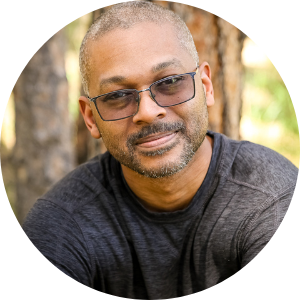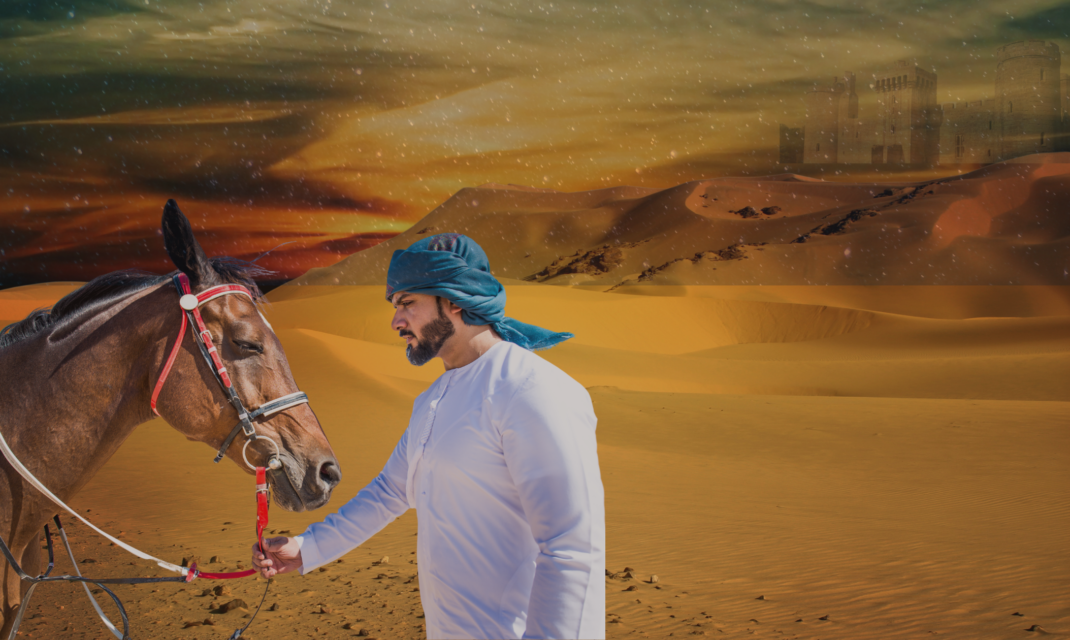Throughout Lent, guest blogger Dr. Junius Johnson will be reflecting on the season through the lens of C.S. Lewis’s great series, The Chronicles of Narnia. We invite you to join him in revisiting this world of childhood imagination even while you prepare your hearts to rejoice again in the salvation Christ worked at the cross.
The Horse and His Boy begins with the boy of the title. Or rather, it doesn’t begin there, but with a short preamble telling us that this story happened during the days of the Pevensie reign. This is the golden age of Narnia, when myth had become fact and all was at last, according to the old rhyme, set to rights.
But our hero, Shasta, does not have access to any of that. He knows nothing about it. He lives deep in Calormen, a kingdom that in the world of Narnia is associated with greed, pride, and wickedness. But even though Calormen is the largest and most powerful nation in the world, Shasta’s world is a small strip just over a mile long. He can look two directions: south or north. To the east, presumably, is the sea, where the fish come from; we are not told what lies to the west. Southward is just more of the same: just more rural Calormen, stretching on to the end of the world, as far as anyone knows. And to the north, there is a hill that blocks him from seeing much of anything.
So Shasta is caught between the certainty of the south and the mystery of the north, and, being a reasonable child, his mind is drawn to the mystery. He watches the north with a hungry eagerness, though nothing ever comes from that way and no one ever goes that way. He was made to work hard and was often badly treated by a man whom he called “father,” but who was prepared to sell him into slavery at the first opportunity. His current life has nothing to recommend it, and so he longs for another.
This is a powerful image for us to sit with in Lent, for it describes us well. Living in the midst of the Kingdom of Sin, held captive by one whom we continue to bargain with and obey even though he only seeks our misery and servitude, torn between what we know and what we don’t know, with really no other choices between them. In such a situation as we and Shasta find ourselves in, discontent is the right answer. It is not virtuous to rest content in that which is not only not good for our souls, but in fact harmful to them; it is rather the abandoning of virtue. That restlessness of the heart that we all remember from childhood, and that some of us feel still, is a gift from God. We work hard to make peace with the world, to settle ourselves and get rid of that nervousness that would always be looking north; but it was given to us precisely so that we would not do that: so that we would be unwilling to make peace, and always seeking a chance to escape.
You see, over that hill lies the rest of the book. Over that hill lies a beautiful and courageous (if a bit proud) maiden who was to become his wife. Over that hill lies the great city of Tashbaan, with probably more inhabitants than the whole realm of Narnia, seat of the Tisroc, the most powerful man in the world; Shasta was fated to take his rest in his royal palace for a time. Over that hill lies a test of courage and loyalty whereby Shasta must risk everything to gain his freedom and to save the innocent. Over that hill lies a magical land of talking animals and the spirits of trees and rivers, and the arms of a long-lost father worthy of that name. Everything a boy could want and more than Shasta could dream lay over that hill.
That is what is on the line for us as well. We may as well say that Shasta lived at the end of the world. Sure, the world continued south for who knows how many hundreds or thousands of miles. But there was nothing else there, just more of the same. He was raised at the place that was the beginning of a monotonous sameness that very much resembles some literary images of Hell. We cannot, you see, settle in without settling, without accepting that the squalor and mistreatment of the fisherman’s hut that is life in this world, even in the most powerful and wealthy kingdom of the world, is enough for us. But Shasta is a prince: he is meant for so much more than that. We are princes and princesses: we cannot afford to settle in exile. We have to get home, whatever the cost.
Here is where we need help. For all his longing, nothing was keeping Shasta from running away. If he had set out the moment his slaver’s boat was out of sight, he could have built such a lead as the old fisherman could never overcome. I don’t think the thought ever occurred to him. And it never occurred to us either. If someone had not shown up to buy Shasta and take him to an even worse slavery, and if he hadn’t had the encouragement of the most unlikely of companions (a talking horse), he would never have set out at all. So it is with us: lying dead in our sins, we would never have begun, had not the most unlikely of companions, the God-man, come to spur us on.
The journey is begun. And having set out, there is no safe place to stop short of the goal. All that awaits us in Calormen is harsher chains than we have yet known, recompense for the audacity we showed in daring to dream of something more. For us, the only way out is through, a battle through desert and mountain to arrive at last at the arms of a Father who has worn the mountains down with the fierceness of his watching.

Junius Johnson is an independent scholar, teacher, musician, and writer. He is the executive director of Junius Johnson Academics, through which he offers innovative classes for both children and adults that aim to marry the sense of wonder with intellectual rigor. An avid devotee of story, he is especially drawn to fantasy, science fiction, and young adult novels. He performs professionally on the french horn and electric bass. He holds a BA from Oral Roberts University (English Lit), an MAR from Yale Divinity School (Historical Theology), and an MA, two MPhils, and a PhD (Philosophical Theology) from Yale University. He is the author of 4 books, including The Father of Lights: A Theology of Beauty. An engaging speaker and teacher, he is a frequent guest contributor to blogs and podcasts on faith and culture, and is a member of The Cultivating Project. Explore his work at juniusjohnson.com.

